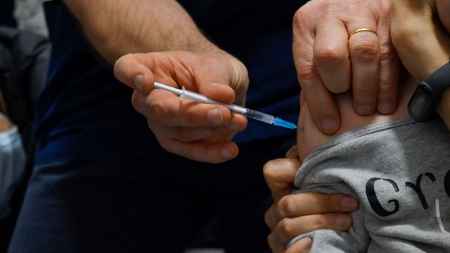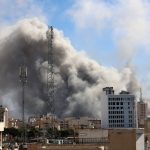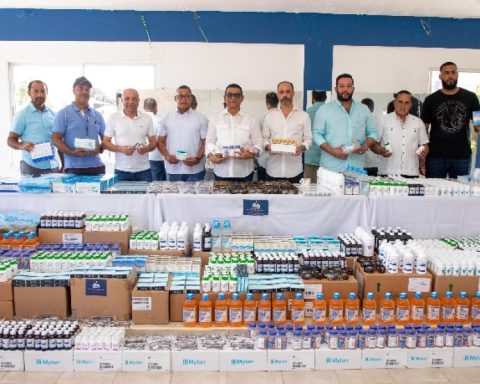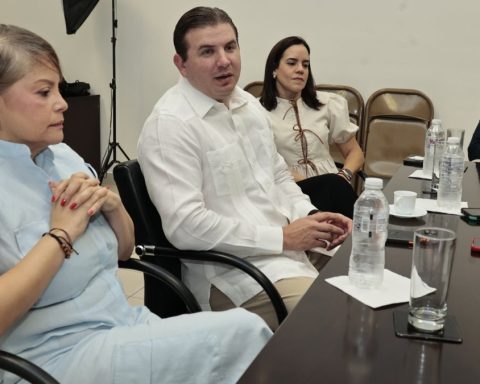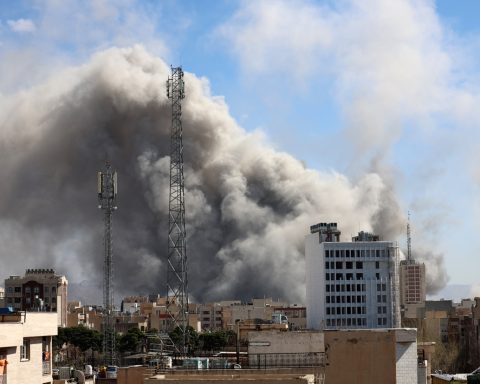The cases of Covid-19 at the national level doubled in the last two weeks driven by the rise in the city of Buenos Aires and, although specialists pointed out that the situation is not to set off an alarm, they did recommend applying the reinforcement doses already that beyond the new circulating variants, the cause may be associated with a drop in immunity due to the time elapsed since the previous infections and the placement of the vaccines.
“At the national level, what one can see is that in the last week the cases doubled compared to the previous one, going from 130 to 252 daily averages; these data are a floor because they still need to be loaded but also because there is a marked decrease in testing , but they still increased,” the physicist and researcher at Conicet Jorge Aliaga told Télam.
And he immediately added: “Of course it is still a very low number compared to what we live through.”
As Aliaga analyzed based on data from the Ministry of Health, “the rise in the national average is driven by the curve of the city of Buenos Aires, where cases tripled compared to two weeks ago, going from 35 to 98 daily averages. There is also an increase in the province of Buenos Aires where the number is lower (from 43 to 69 daily averages)”.
Regarding the causes that drive this rise, Aliaga – who analyzes data from the beginning of the pandemic – pointed out that “as always they are multi-causal.”
“On the one hand, the Country Project (sequence the circulating coronavirus genomes) had been detecting more contagious variants; but it also happens that every year-end the meetings increase and people lock themselves in with air conditioning without ventilation,” he described.
In this context, “what would be expected would be that they continue to grow until January, when people go on vacation and disperse.”

The infectologist Leda Guzzi agreed that “cases have experienced a slight increase in recent weeks in a context of very limited testing.”
For the specialist and member of the Argentine Society of Infectious Diseases (SADI), “the regional situation is worrying, particularly in Brazil, where the health authorities once again imposed this week the use of chinstraps in airports and flights.”
“Every time something of this type happens in the region, it ends up having an impact on the country, which is why the increase in Brazil is worrying and makes us foresee an increase in cases,” he warned in dialogue with Télam.
Guzzi recalled that “we are still in a pandemic, the virus is present; what vaccines have achieved in the world is enormous, but the virus continues with its ability to mutate and generate new waves, so our country is not exempt from viral dynamics.”
“The regional situation is worrying, particularly in Brazil, where the health authorities once again imposed the use of chinstraps in airports and flights this week”Leda Guzzi
The new variants
Regarding the new variants detected, the molecular virologist Humberto Debat, a member of the SARS-CoV-2 Genomics Inter-Institutional Argentine Project (PAIS), provided reassurance: “They are still Omicron subvariants and almost the entire world population has undergone an infection by Ómicron, so the probability that this will have a strong health impact is very low even if the number of infections increases,” he said.
“We are at a stage of the pandemic with favorable epidemiological markers because, although there are reports in different parts of the world of growth in new infections, they are being reported about 350 thousand cases dailywhich is more than 10 times less than what we had in Omicron peaks, and there has been a sustained drop in deaths for six months, with about a thousand deaths a day globally,” he said.
The cases in Brazil
Regarding the increase in cases in Brazil, Debat explained that it could have some association with new variants that are circulating; For example, in the Amazon, a sublineage of Omicron called BE.9 was recently described, and in Rio de Janeiro the frequency of BQ1.1 is increasing.
“Of the BE.9 variant of the Amazon there is no record of reports in other parts of the globe, so we do not know if it has begun to spread, and of BQ1.1 we know that it has a growth advantage of 30% compared to other sublineages. of Ómicron and was detected in 77 countries globally, including Argentina, Peru, Chile, Colombia”.
However, for the researcher, the key to the increase in cases might not have so much to do with the new subvariants, but rather with the fact that waves of infections were several months ago, lowering levels of protection of people who had Omicron more than 180 days ago.
“On the other hand, there is a radical decrease in the rate of immunization by boosters (of vaccines) that is something that is seen all over the world,” he added.
Have you updated your protection against COVID-19 yet? ?
? Come to a vaccination center, health center or hospital to give you the reinforcement.
Consult in your jurisdiction the nearest place.
i ️ If you need to know more about your vaccination scheme, go to: https://t.co/6mp9fBT0cC pic.twitter.com/tnjpPc71rU
– Ministry of Health of the Nation (@msalnacion) November 21, 2022
For his part, the infectologist Lautaro De Vedia agreed that “there is an increase in cases, but with mild symptoms” and assured that in this context “vaccination continues to be very important.”
Along the same lines, Guzzi maintained that “the most important thing in this scenario is the application of reinforcement doses: a second reinforcement for all and a third reinforcement for people with risk factors and over 50 years of age, and to remember the importance from constant cross-ventilation indoors and coughing into the crook of your elbow.
“We must also bear in mind that if a wave occurs again, all care must be resumed, which includes the use of chinstraps indoors,” said the specialist, for whom, despite the fact that people are exhausted, it is not free to get infected even if mildly from coronavirus.
“It is a virus that has demonstrated not only its capacity for mortality, but also that it causes prolonged symptoms”he insisted.
Guzzi emphasized that “each infection represents a risk and according to the scientific literature, this risk increases as infections increase, so it is important to try to mitigate it.”
“We already know what we have to do. On the one hand, apply the corresponding vaccines; on the other, if it is not possible to use chinstraps in indoor places where you stay for a long time, ventilation is key, so even with the air on, it is It is important to leave something open so that the air can be renewed”, concluded Aliaga.
